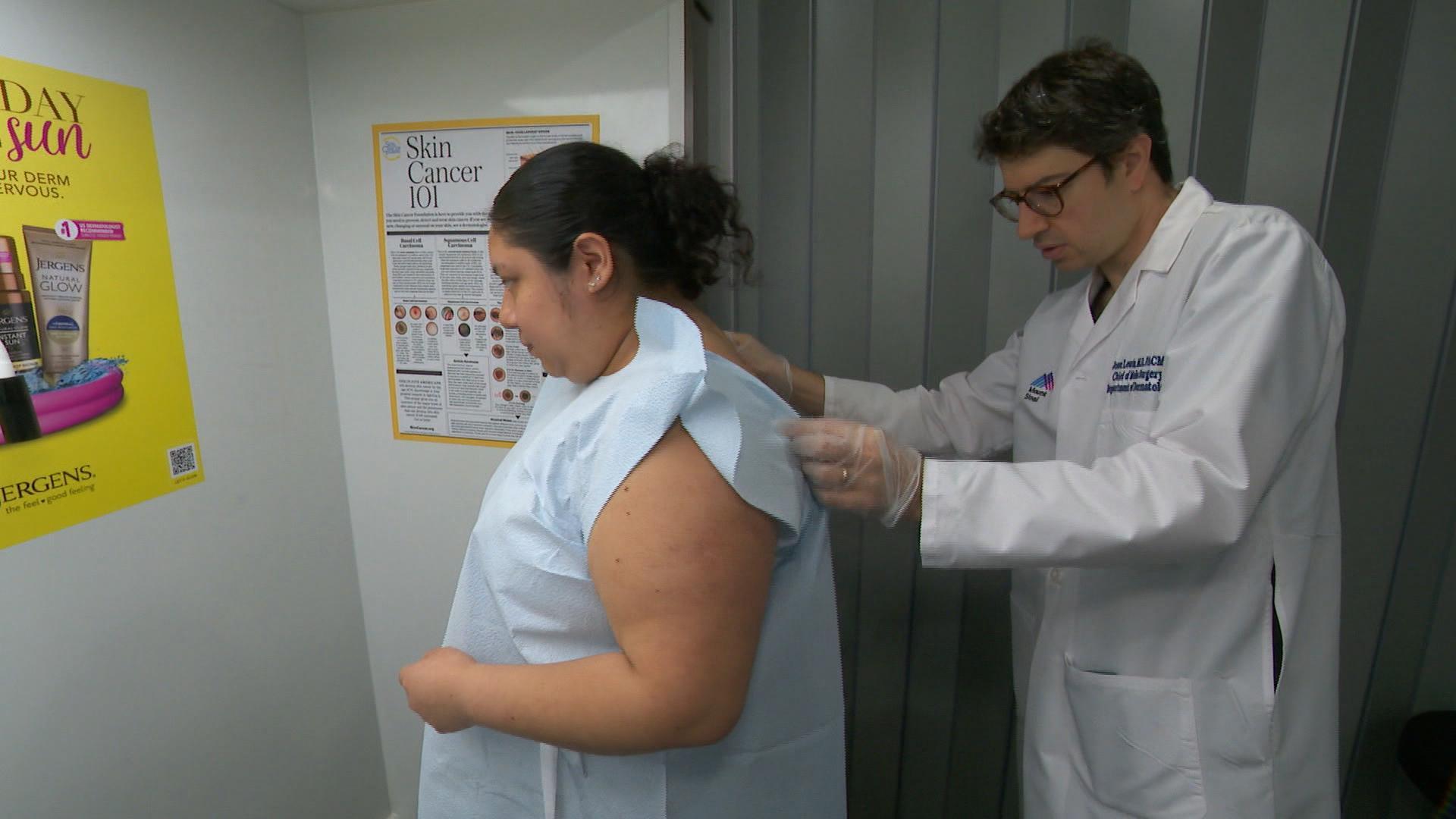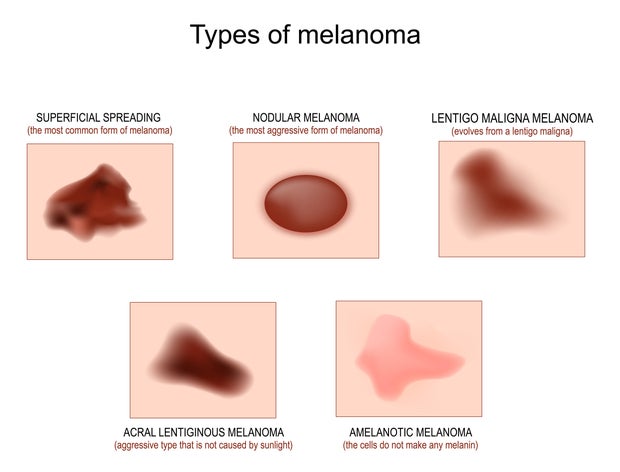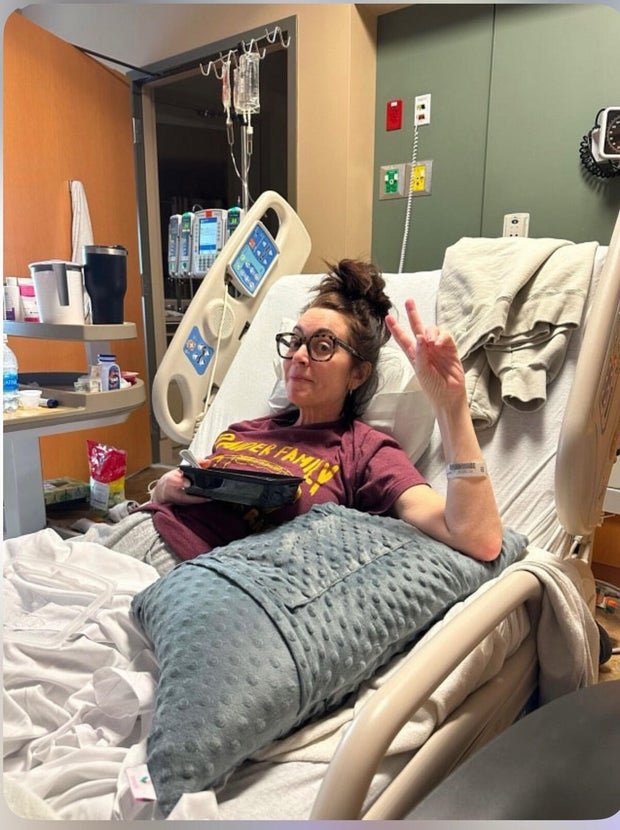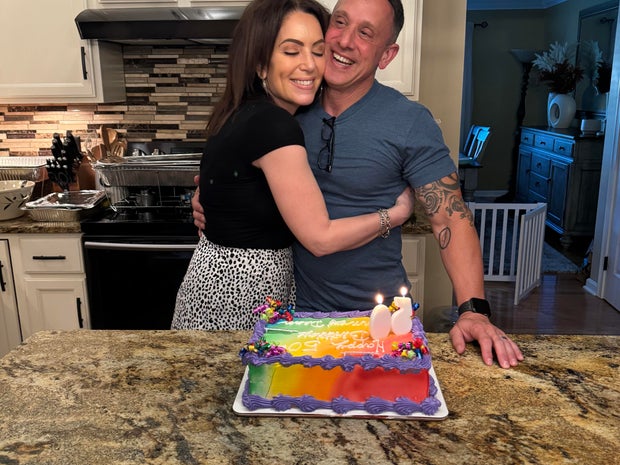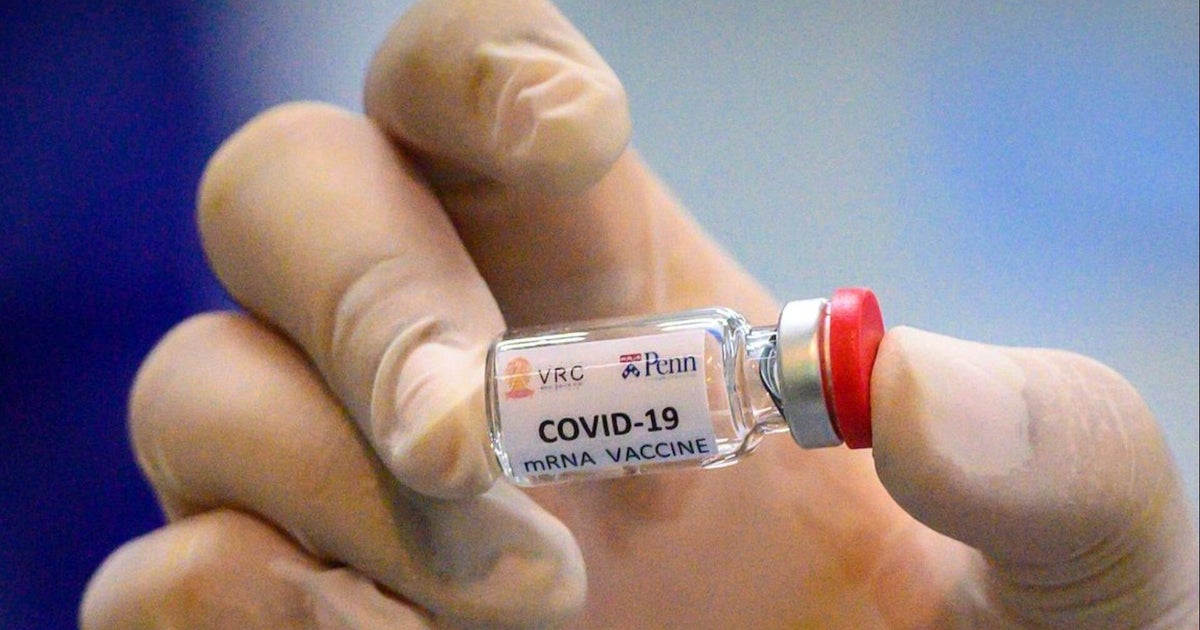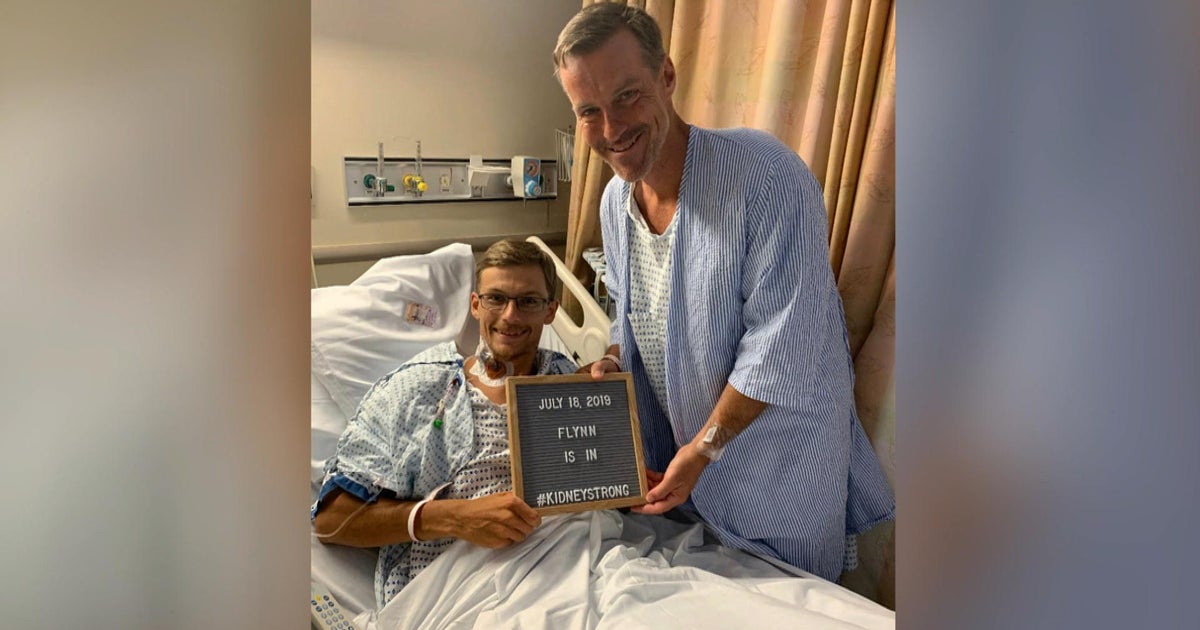Woman thought she had pulled a muscle working out. It was a rare cancer that had spread to her brain.
Jennifer Frederick was in the best shape of her life in 2023, so when she felt a small lump in her groin area after a week of workouts. She thought it was just a pulled muscle, but a month later, the lump was still there.
Four months later, the lump was growing. Frederick went to a dermatologist and testing found more lumps in her leg. She scheduled a biopsy. On December 14, surgeons cut into her leg and removed the largest lumps. A week later, she had a diagnosis: Metastatic malignant melanoma. The disease is usually heralded by a mole on the skin, but Frederick never had one.
More tests showed the cancer wasn't just in her leg. One scan found four lesions on her lungs. Another found five lesions on her brain. The results were shocking, Frederick said.
"I never had a migraine, headache, blurry vision, never had problems breathing, never had a cough," Frederick, 50, said. "I never felt off at all."
What is metastatic malignant melanoma?
Melanoma is the deadliest form of skin cancer. Metastatic melanoma is any time of cancerous melanoma that has spread from one location to another, said Dr. Michael Postow, a medical oncologist at Memorial Sloan Kettering, who was not involved in Frederick's treatment. Metastatic malignant melanoma refers to late-stage metastatic melanoma.
"Melanoma is a kind of cancer that can spread pretty widely throughout the body," Postow said. "It's one of the cancers that frequently involves the brain, so spread from melanoma to the brain ... can be quite a common occurrence. The lung is also a common site of metastatic melanoma."
Typically, melanoma is recognized by a brown or black mole on the skin. Postow said it's unusual but not unheard of for a patient to have no mole or a "microscopic" one. He said that in addition to keeping an eye out for a new mole or an existing mole that changes color, size or texture, people should watch for lumps under the skin like the one Frederick had. Any concerns should be brought to a dermatologist, Postow said.
The five-year survival rate for patients with advanced metastatic melanoma is about 35%, according to . Postow said that for patients who receive certain immunotherapy treatments, that number rises to 50%. Just a decade ago, the five-year survival rate was closer to 10%, he said.
Immunotherapy was what Frederick's doctor, Cleveland Clinic medical oncologist Dr. Lucy Boyce Kennedy, recommended. The two talked over the options and decided to go with an intensive treatment that would combine gamma knife radiation and two immunotherapy drugs. Kennedy described the treatment protocol as "fairly high risk" and warned it could lead to the immune system attacking other organs. Frederick was undeterred.
"She explained what this was going to look like. And I looked at her and I said, 'I don't care what it is. If it's the most aggressive treatment, I'm willing to do whatever it is,'" Frederick said. "I just wanted to be my healthy Jen Frederick again so I can get back to a normal life."
A difficult treatment
Frederick underwent gamma knife radiotherapy on January 7. The treatment uses precise gamma rays to target cancer tumors. Frederick said that it went well, but when she started receiving the biweekly immunotherapy medications on January 17, she began feeling "bad side effects," including "flu-like symptoms, rash, nausea," and high fevers.
As she continued the treatment, the side effects expanded to include vomiting, chills and problems with her stomach and eyes. She was using the bathroom "25 plus times a day," Frederick said. She was hospitalized and spent a month in and out of the hospital. There was significant inflammation in her colon. She weighed only 95 pounds.
"They would release me. I would go home. I'd be home 24 hours, and have to go back because I would just start vomiting again. I couldn't hold any food down," Frederick said. She had to take two months off from the immunotherapy to take steroids, antibiotics and other medications to treat the side effects. After recovering, she resumed treatment.
When Frederick underwent her first PET scan since starting treatment, it showed "major, major improvement," she said. That made the months of pain, discomfort and illness worth it. A second scan several weeks later showed things were continuing to move "in the right direction," Frederick said. The immunotherapy was reduced to every three weeks, then every four weeks as she continued to improve.
"My doctor said that I'm a Stage IV miracle," Frederick said.
"Cancer does not have me"
After 18 months of treatment, Frederick has not seen any progression of her cancer and continues to improve, her care team said. Kennedy believes that she has "a really excellent chance of having really long-term survival." Clinical trial patients who received the same treatment Frederick did are still doing well 10 years after the study, , Kennedy said. She believes Frederick will have a similar journey.
"I only use the 10-year number because that's just as old as the drugs are. I think those patients will have responses that last beyond that, potentially indefinitely," Kennedy said.
Frederick will continue her treatment until December 2025, Kennedy said. Then, she will start undergoing regular screening scans to make sure her cancer is not returning. Frederick said that once she is done with active treatment, she wants to share her story and make sure people know the importance of early screening. She has begun mentoring other cancer patients through the .
"I want people to know it gets harder before it's easier," Frederick said. "My saying has always been 'I may have cancer, but cancer does not have me.' And I want people to feel that way, because it isn't a death sentence."
